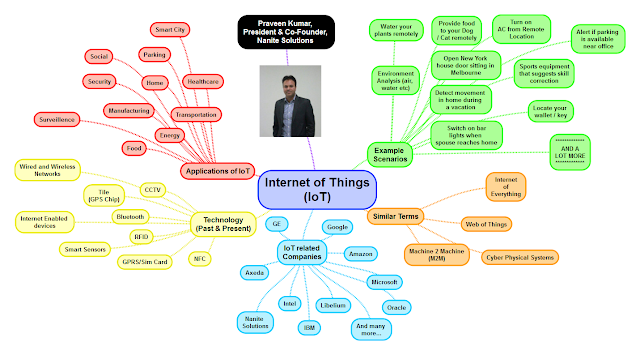MOBILE STRATEGY FOR A FOOD TECH START UP
Food is a necessity without what we cannot
live. The survival of mankind and all other living creatures largely depends on
it. In fact, without food, man would cease to exist. It is where we all draw
our energy from which allows us to breathe, work and carry out our daily
activities. Food is also a great source of income for many. Due to its constant
demand all over the world, many people are taking it up as a business and
making a living out of it. Just like every other business, competition has
forced many to get creative and use all the resources available to make their
businesses grow and stay afloat. With the emergence of new technologies on a
regular basis, the possibilities are endless. What seemed impossible to achieve
one decade ago can now be done with ease.
One such thing that has been
embraced by many is the use of mobile phones in the food tech industry. It is
not the hardware, rather the software that is acting like a game changer in the
industry.
·
Flexibility
Many people find themselves so
much engrossed in their busy schedules that they have little or no time to run
their errands. This demanding lifestyle, especially amongst the urban dwellers
has led to many people opting to eat food from restaurants as opposed to making
home-cooked meals. This has in turn led to an upsurge of food tech businesses.
·
Increased
Profits
With the evident growth of
cities and the availability of a growing target market, the basic principles of
demand and supply determine business sustenance. It is, however, the embrace of
mobile technology that has led many food tech businesses to realize larger
profit margins than their counterparts.
The science behind this is the
fact that businesses that have embraced mobile technology have realized a drop
in their operational costs. Mobile technology has allowed most businesses to cut
down on their expenditure in the form of reduced advertising and communication
costs. Use of mobile technology helps reduce the cost of customer acquisition
which basically means that business owners are spending less to attract
customers to their businesses.
·
Convenience
It is easier today to book a
table at a restaurant via a mobile application which offers both the client and
the service provider the convenience of making the necessary arrangements through
the click of a button. The customer also enjoys the privilege of checking out
their menu for what to eat, all from the comfort of their home or workplace. Prior
to the embrace of mobile strategy in this line of business, a simple
transaction like this would require a customer to make their way to the restaurant
to book a table. Thereafter, proceeding to make their order and then waiting
for it. This not only used to waste time but resources as well. Imagine driving
all the way to the restaurant to find that they are booked out and there are no
open tables available. What’s worse, being a vegan, arriving at the restaurant
to find out that they don’t serve vegan dishes. However, the embrace of mobile
technology eliminates such unnecessary inconveniences of the customer and the
business owner as well.
·
Reduced
Expenses
The fact that customers can also place
orders for delivery to their homes or workplaces via their mobile phones has
greatly reduced the need to acquire large business premises to occupy all the
customers at once. It means that one can cater a large clientele without
necessarily having a bigger premise to shelter them. It translates to lower
rent expenses, especially for start-up food tech businesses.
·
· Marketing Platform
A strategy that has proved to work well is the marketing of new dishes and those already available via the restaurant`s app. Through mobile strategy, most restaurants have managed to create large databases of their frequent customers. This has in turn enabled them to use it as a platform to reach out to masses when marketing their offers.
·
Improved
Customer Experience
Restaurant owners can now make
real-time improvements or adjustment on the services they offer based on
information they get directly from their customers. They can also determine
considering the sales which foods are the most favorite to the customers and
therefore can provide those food items more. This in turn improves the customer
experience as the restaurant continues to understand the customers’ needs.
So, is it important to include
mobile strategy in your food tech start-up? Below are some of the key pointers
to consider before making a final move.
·
PROS
-
It is convenient for the customer and business
owner, as it allows them to make prior arrangements necessary to facilitate a
transaction.
-
It reduces the operational cost by allowing
customers to make orders for delivery outside the premises, therefore cutting
down on rent expenses.
-
It increases the customer base, as it allows one
to serve a large number of customers.
-
It reduces wastage/spoilage of food since the
business owner only prepares for orders that have already been placed.
-
It saves time as the restaurant can start
preparing a customer’s order as soon as the order is placed.
-
It helps the restaurant owner make real-time
decisions based on facts acquired from the sales in the restaurant.
·
CONS
-
As a business owner, one has little or no
control on the services offered by the mobile service provider. This can lead
to customers experiencing downtimes while trying to place their orders.
Conclusion
In a nutshell, the benefits of
adopting mobile strategy in a food tech start-up obviously outweigh the
disadvantages. With the realization of success in industries that have adopted
the mobile strategy, it is more than likely to have a positive outcome when
included as a part of the strategy to cut down on business expenses and yield
high return in an industry that is driven with a lot of skills and competitions.





Comments